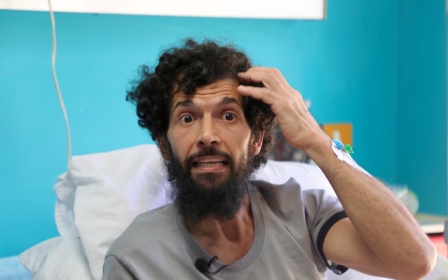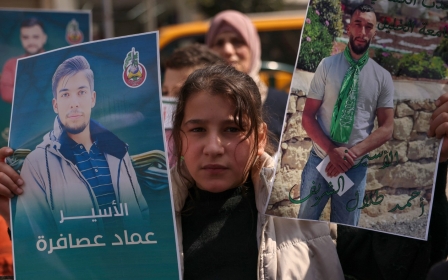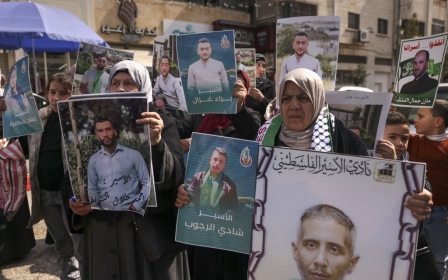War on Gaza: The Sde Teiman riots show Israeli statehood breaking apart
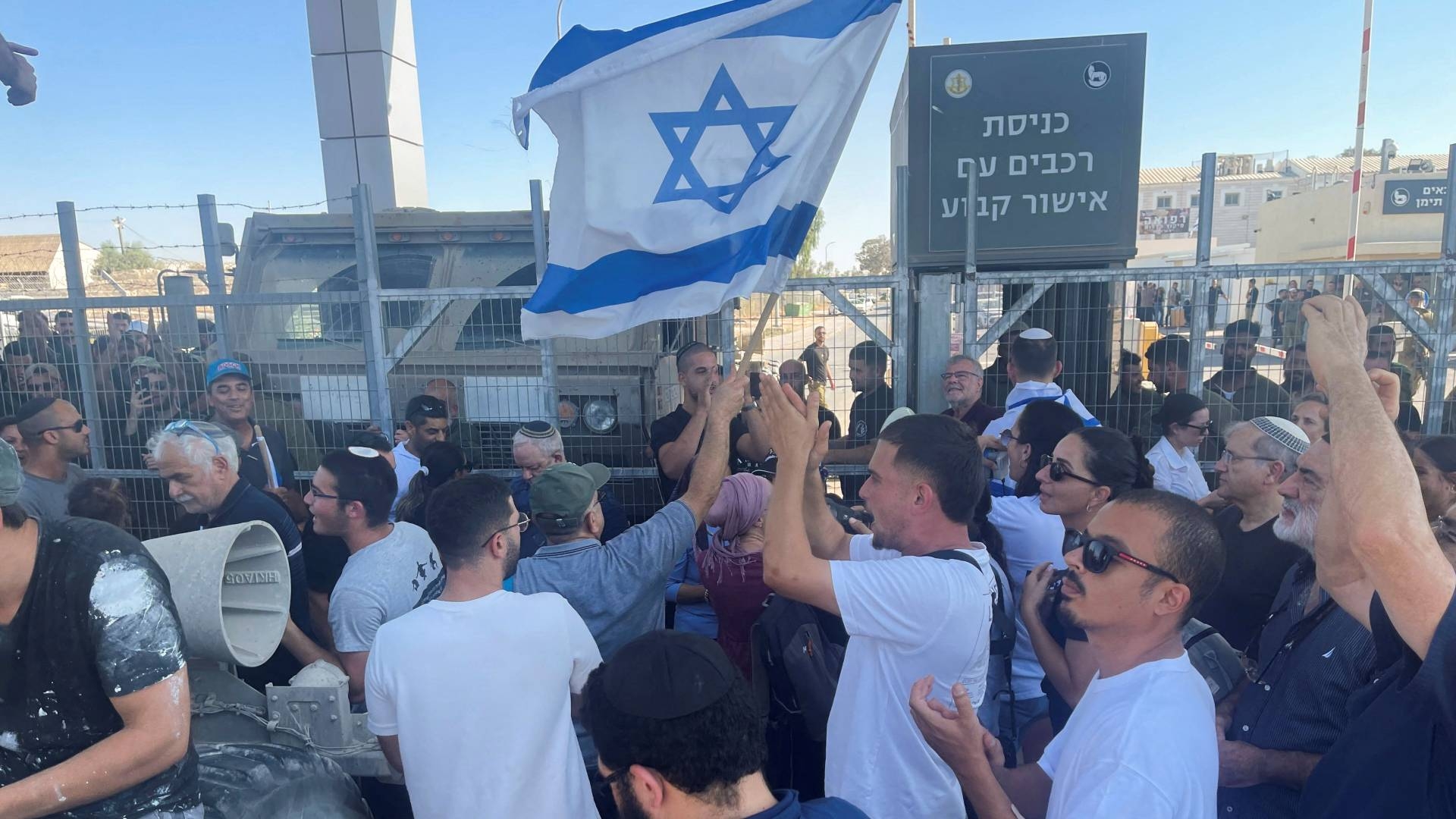
Recent events at the temporary Sde Teiman prison, where the Israeli military police arrested soldiers suspected of raping Palestinian detainees after one prisoner was taken to hospital showing signs of violent rape, are indicative of broader developments in the state of Israel.
The arrests led to an Israeli mob, alongside right-wing Knesset members, arriving at the detention facility to confront the army and prevent the arrest of the suspected soldiers.
This development illustrated the deep changes occurring in Israeli society and its relationship with the army, which until a few years ago was perceived as a body enjoying broad legitimacy and at the heart of the Israeli consensus, both from the right and left.
However, since the beginning of the genocidal war in Gaza and the military and intelligence failures of the army to protect villages and towns surrounding Gaza, the army has lost its consensus, with sectoral and political splits rife within the military.
However, this trend did not start with the war and encompasses deep institutional problems within Israeli institutions such as the army and the Supreme Court.
New MEE newsletter: Jerusalem Dispatch
Sign up to get the latest insights and analysis on Israel-Palestine, alongside Turkey Unpacked and other MEE newsletters
These embody Israel's power as a state of institutions and the law, where the state always had the upper hand against any individual who broke the law.
Indeed, Israel has not hesitated in the past to arrest prime ministers, presidents, Knesset members and public figures when they have been deemed to have broken the law.
Apartheid regime
One of the most defining events in the early years of the state of Israel was the Kafr Qasim massacre in 1956, eight years after the Palestinian Nakba. There, Israeli soldiers shot dead 47 Palestinian citizens of the state after a curfew had been imposed on the outbreak of the Suez War without the information having been relayed to Palestinian citizens.
Although then-Prime Minister David Ben-Gurion tried to cover up the massacre, a week later a committee tasked with investigating the shootings found that commanders and officers should be prosecuted.
Follow Middle East Eye's live coverage of the Israel-Palestine war
They were found guilty and imprisoned. More importantly, it set a precedent for state policy, where the oppression of Palestinians would be punished by law and where the state would punish individuals who took the law into their own hands.
Despite all moral and ethical criticisms against Israel, it's important to distinguish between its relations with the Palestinians and with Jews.
For Palestinians, according to Amnesty International, Israel maintains an apartheid regime from the river to the sea, with varying, discriminatory policies against Palestinians.
On the other hand, Israel offered a democratic internal polity for its Jewish citizens based on equality before the law. This created a strong national project with state institutions - widely perceived by the public as being non-political - having internal legitimacy.
Then, a decade ago, on 24 March 2016, a young soldier named Elor Azaria executed a Palestinian who was already neutralised and posed no threat.
The incident was filmed by a Palestinian activist who sent the footage to media channels. Initially, both the defence minister and the chief of staff condemned the act, and an investigation was launched against the soldier.
Benjamin Netanyahu, then the prime minister, also initially condemned the act. However, as time passed, there was increasing pressure on the military police to mitigate Azaria's punishment, turning him into a popular Israeli symbol persecuted by the system.
This reflected a new cycle of old sectoral struggles between urban and peripheral areas, Ashkenazim and Mizrahim Jews, and secular and religious groups.
Foundational assumptions
This marked the beginning of the weakening of institutional statehood and the questioning of foundational assumptions.
Institutions that symbolised the Israeli consensus and served as catalysts for national unity began to be seen as arenas for various Jewish sects, with decisions, whether operational or organisational, interpreted as politically motivated by sectoral interests, particularly between the old Ashkenazi elites and the new right-wing elites.
Institutions that symbolised the Israeli consensus and served as catalysts for national unity began to be seen as arenas for various Jewish sects
This same assumption can be used to analyse the proposed judicial reforms and the Israeli right's criticism of the Supreme Court - an institution that once enjoyed very high legitimacy, but now has become a battleground over influence, paralysing the system.
However, these events are not unique to Israel.
In recent decades, we have witnessed the rise of populist right-wing movements in the West, challenging state institutions.
A prime example of this was the 6 January riot at the Capitol building in Washington, DC, where Donald Trump's supporters refused to accept the result of the presidential election and stormed the building.
However, a country such as Israel, which has existed for 76 years around very delicate balances based on regional military superiority, political and social legitimacy from the Jewish majority and general prosperity that consistently improved GDP, has managed to maintain an apartheid policy while simultaneously presenting a liberal, legal state facade to international institutions.
This created the impression of Israel as a state of law.
Political polarisation
In the Israeli political and legal culture, the Supreme Court was described as the "flak jacket" for the Israeli army in the international arena.
Political polarisation and a growing lack of trust in Israel's institutions pose a threat to this balance and endanger the survival of the Israeli apartheid regime and even the entire Zionist project.
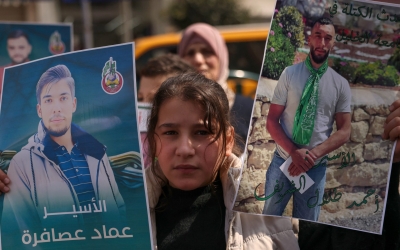
Therefore, the recent events at Sde Teiman are an eruption of tension between apartheid and statehood.
Israeli politicians and public figures in the last decade have lost all their restraint in inciting public violence against Palestinians, encouraging direct eviction and expulsion.
So it follows that when these same institutions attempt to enforce the law, they become pariahs in the eyes of the public.
Thus, the current debate in Israel is not about the existence of a facility where soldiers commit sodomy and rape against Palestinian detainees.
Rather it is between those who fear the implications of an International Criminal Court judgment regarding this facility - and understand that the justice system must investigate in order to avoid international arrest warrants for Israelis abroad - and the violent populism that believes it can do without the rule of law, without understanding the consequences for the state of Israel.
The views expressed in this article belong to the author and do not necessarily reflect the editorial policy of Middle East Eye.
Middle East Eye delivers independent and unrivalled coverage and analysis of the Middle East, North Africa and beyond. To learn more about republishing this content and the associated fees, please fill out this form. More about MEE can be found here.



